Last Wednesday, President Obama announced his Administration’s plan to begin withdrawing troops from Afghanistan. Most Americans did not tune into this speech. 43% of Economist/YouGov Poll respondents say they listened to all or part of the speech. Nevertheless, there is wide support for his plan to withdraw 10,000 U.S. troops by the end of 2011 and 23,000 more by the end of 2012. 62% of Americans support this plan. Democrats are the most supportive, while 65% of Independents back the President on this issue. But Republicans are more divided, with 41% supporting the President’s plan and 33% opposing it.
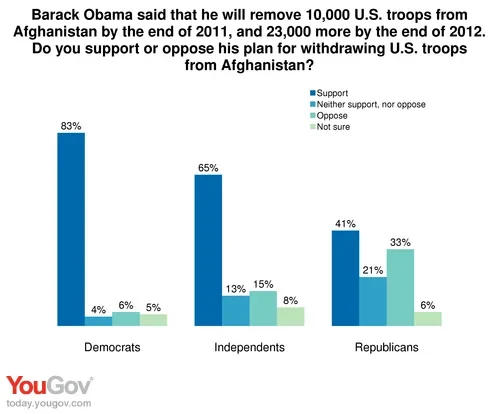
Republicans agree that troops should be withdrawn from Afghanistan, but they think that the pace of withdrawal that the President has proposed is too fast. 35% of Republicans say the pace is too fast, compared to 5% of Democrats and 13% of Independents. Overall, 46% of Americans say the pace the President proposed is about right.
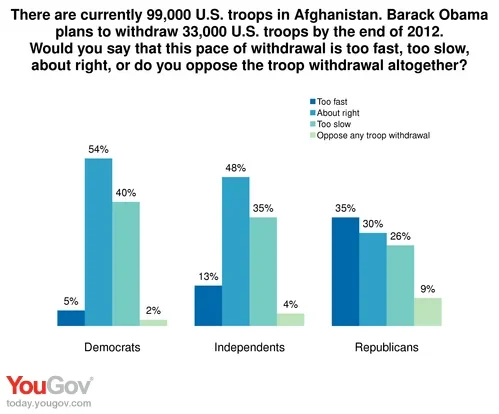
Americans support withdrawal from Afghanistan, even without a definitive U.S. victory there. There is a growing belief that the U.S. will withdraw from Afghanistan without winning. Following a brief period of optimism after the killing of Osama bin Laden, the percent of Americans who think the U.S. will not win in Afghanistan is on the rise again.
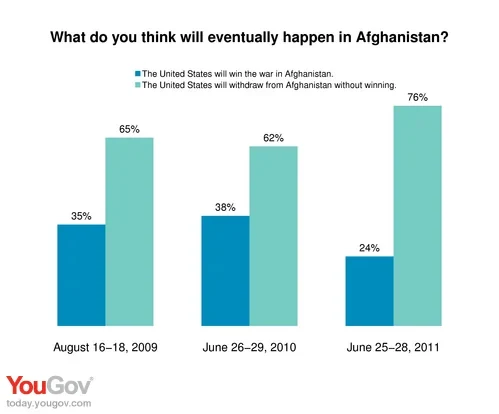
One in five believe the U.S. has achieved its goals in Afghanistan and another 8% think the U.S. hasn’t yet, but will eventually achieve its goals there. Despite pessimism about prospects in Afghanistan, Americans are not yet ready to endorse peace talks with the Taliban. The U.S. government has indicated that it would support such talks in Afghanistan. Among the American public, 39% have no opinion on whether such talks should take place. Of those with an opinion, 29% favor negotiations with the Taliban to end the Afghan war, while 33% oppose them.
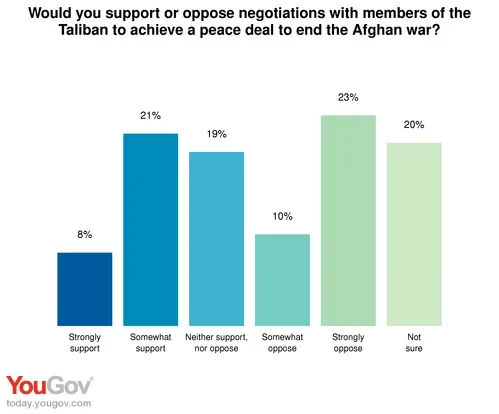
The U.S. involvement in Libya is another foreign policy issue that is the topic of much discussion in the media and in Congress. Criticism from some members of Congress that the President should have requested Congressional authorization before joining the NATO-led military mission in Libya has not turned the public against the President. 17% of Americans are not following events in Libya at all. Of those who are following the news, approval for how the President has responded to events in Libya has risen 5% since last week so that now, the number who approve exceeds the number who disapprove.
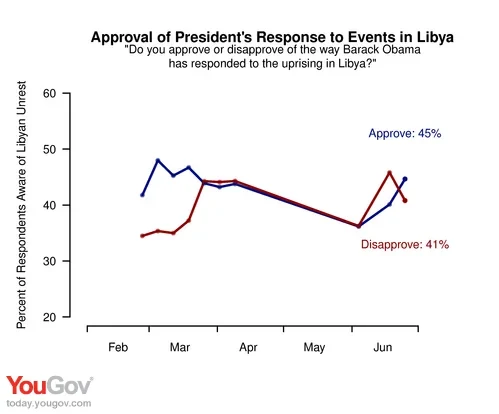
If Americans had their say, they would not have voted the way the House did last week, when it resoundingly rejected a resolution to support the military operation in Libya. Of those who are following events in Libya, 39% think Congress should authorize U.S. involvement in the NATO-led mission; 34% think it should not. While Congress rejected an effort to restrict funding for American combat activity in Libya, people following the events in Libya are neither for, nor against such action. 32% support withholding funds, 30% oppose it, and 38% have no opinion on the matter.
Full datasets for Economist/YouGov polls can be found here.
Photo source: Press Association






